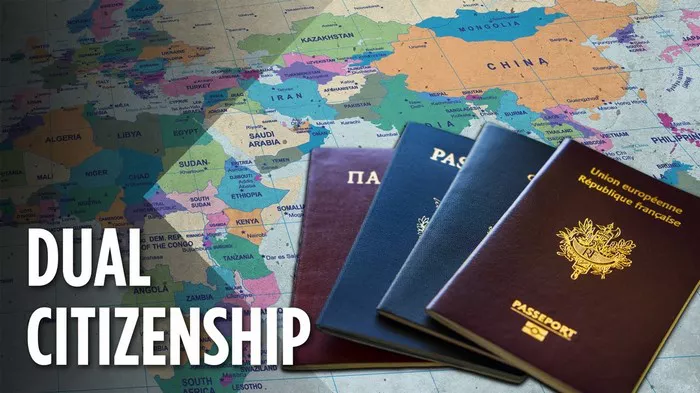Dual citizenship, also known as dual nationality, refers to the legal status of an individual being a citizen of two countries simultaneously. While it offers certain advantages such as increased travel and employment opportunities, access to social services, and the ability to maintain familial ties across borders, dual citizenship also comes with its share of disadvantages. Understanding these drawbacks is essential for individuals contemplating acquiring or already holding dual citizenship.
1. Legal Complexity and Obligations
One of the primary disadvantages of dual citizenship is the legal complexity it introduces. Each country has its own set of laws, regulations, and obligations, including tax laws, military service requirements, and voting rights. Dual citizens may find themselves subject to conflicting legal obligations between their two countries, leading to confusion and potential legal issues. For example, they may be required to pay taxes to both countries, serve in the military of one country while residing in the other, or navigate differing inheritance laws.
2. Restricted Rights and Privileges
Dual citizenship may also result in restricted rights and privileges in both countries. Some countries impose limitations on dual citizens regarding property ownership, participation in government positions, or access to certain social benefits. Additionally, dual citizens may face challenges in exercising their voting rights, as some countries prohibit dual citizens from voting in national elections or require them to renounce citizenship in one country to participate fully in the political process of the other.
3. Diplomatic and Political Considerations
Dual citizenship can complicate diplomatic and political relationships between countries. Governments may view dual citizens with suspicion, questioning their loyalty and allegiance. In cases of international conflict or tension, dual citizens may face scrutiny or even discrimination based on their dual nationality. Furthermore, holding citizenship in multiple countries may hinder individuals from participating in diplomatic or political roles that require impartiality or undivided loyalty to a single nation.
4. Identity and Cultural Confusion
Another significant disadvantage of dual citizenship is the potential for identity and cultural confusion. Dual citizens may struggle to reconcile their dual identities and may feel disconnected from both cultures. This can lead to a sense of alienation or identity crisis, especially for individuals who were born or raised in one country but hold citizenship in another. Additionally, dual citizens may encounter difficulties in language proficiency, social integration, and understanding cultural norms, further exacerbating feelings of disconnection.
5. Increased Scrutiny and Surveillance
Dual citizens may be subjected to increased scrutiny and surveillance by government authorities in both countries. This heightened attention can result in privacy concerns and invasive monitoring of personal activities, particularly in cases where one country perceives the other as a security risk. Dual citizens may also be more vulnerable to profiling and discrimination based on their dual nationality, leading to potential travel restrictions, denial of entry, or heightened security checks at borders.
6. Travel and Immigration Challenges
While dual citizenship can facilitate travel and immigration between two countries, it can also present challenges and complications. Some countries have restrictions on entry, residency, or employment for dual citizens, requiring them to obtain special visas or permits to travel or reside in the country of their second citizenship. Additionally, dual citizens may face difficulties in navigating immigration procedures, including proving their identity, residency status, and eligibility for social benefits or services.
7. Family and Personal Relationships
Dual citizenship can strain family and personal relationships, particularly in cases where family members hold citizenship in different countries. Conflicting loyalties, cultural differences, and legal complexities may create tensions within families and affect decision-making processes regarding residency, education, and career opportunities. Furthermore, dual citizenship may complicate matters in the event of divorce, child custody disputes, or inheritance issues, requiring individuals to navigate multiple legal systems and jurisdictions.
8. Financial and Economic Implications
Dual citizenship can have significant financial and economic implications for individuals, particularly regarding taxation, asset management, and financial planning. Many countries have complex tax laws that may require dual citizens to report and pay taxes on income earned both domestically and internationally. Failure to comply with these tax obligations can result in penalties, fines, or even legal action. Additionally, dual citizens may face challenges in accessing financial services, obtaining loans, or investing in certain markets due to regulatory restrictions or compliance requirements.
9. Social Stigma and Discrimination
Dual citizens may experience social stigma and discrimination based on their dual nationality. In some societies, individuals with multiple citizenships may be viewed with suspicion or distrust, perceived as disloyal or unpatriotic. This stigma can manifest in various forms, including social exclusion, stereotyping, or negative attitudes towards dual citizens in employment, education, or social settings. Furthermore, dual citizens may face challenges in establishing a sense of belonging or acceptance within their communities, leading to feelings of isolation or marginalization.
10. Renunciation and Loss of Identity
In certain situations, individuals may choose to renounce one of their citizenships to alleviate the burdens associated with dual nationality. However, this decision can be emotionally and psychologically taxing, as it may involve relinquishing ties to one’s heritage, culture, or ancestral homeland. Renouncing citizenship can also have practical implications, such as losing access to social benefits, employment opportunities, or the ability to reside in a particular country. Additionally, individuals who renounce their citizenship may experience a sense of loss or identity crisis as they navigate their new status as a single citizen.
Conclusion
While dual citizenship offers various benefits, including increased mobility, access to resources, and expanded opportunities, it also comes with a range of disadvantages and challenges. From legal complexities and identity issues to diplomatic tensions and social stigma, dual citizenship requires individuals to navigate a complex web of obligations, responsibilities, and uncertainties. As the global landscape continues to evolve, understanding the advantages and drawbacks of dual citizenship is essential for individuals seeking to navigate the complexities of modern citizenship in an increasingly interconnected world.


